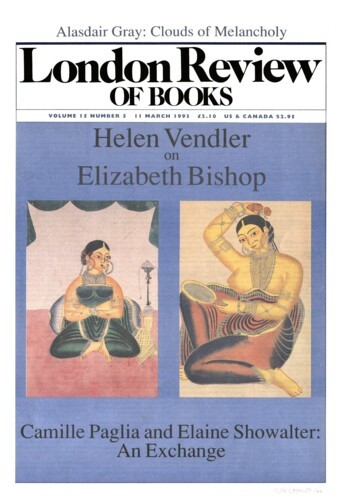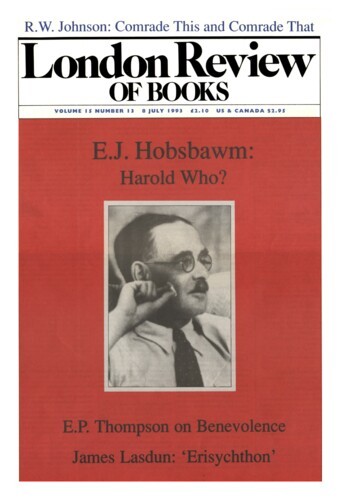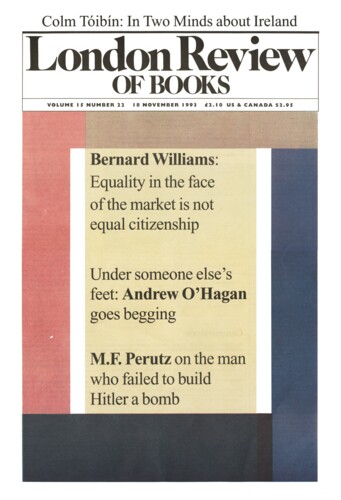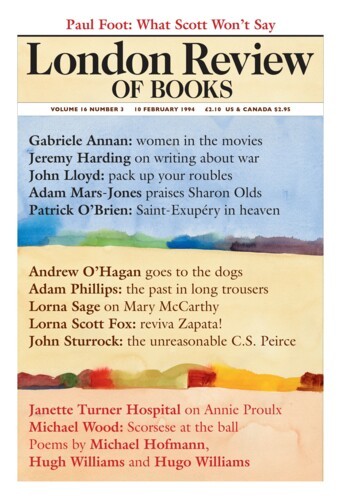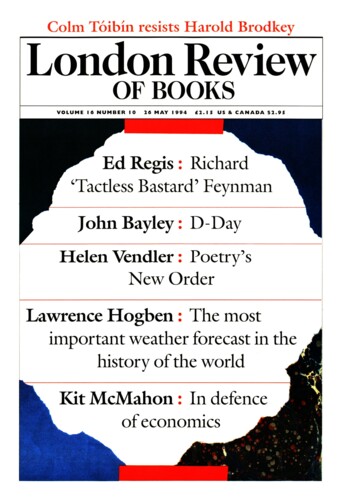Diary: Have You Seen David?
Andrew O’Hagan, 11 March 1993
The abduction and murder of James Bulger, a two-year-old boy from Liverpool, has caused unprecedented grief and anger. Hours before the two ten-year-old boys accused of the crime arrived at South Sefton Magistrates’ Court, a large, baying crowd had formed outside. As a pair of blue vans drew up, the crowd surged forward, bawling and screaming. A number of men tried to reach the vehicles, to get at the youths inside, and scuffles spilled onto the road. Some leapt over crash-barriers and burst through police cordons, lobbing rocks and banging on the sides of the vans. Many in the crowd – sick with condemnation – howled and spat and wept. Kenneth Clarke has promised measures to deal with ‘nasty, persistent juvenile little offenders’. Those two little offenders – if they were the offenders, the childish child-murderers from Walton – were caught on camera twice. First, on the security camera at the shopping precinct in Bootle where they lifted James, and again by the camera of a security firm on Breeze Hill, as they dragged James past – the child clearly in some distress.’
